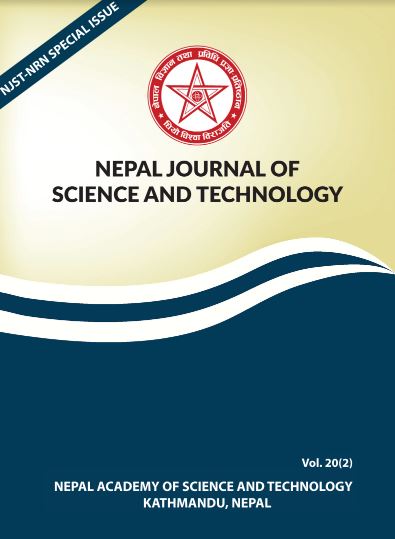COVID-19: Knowledge, Attitudes, and Practices among the Scholarly Cohorts of Nepal
DOI:
https://doi.org/10.3126/njst.v20i2.45777Keywords:
Coronavirus, disease, knowledge, attitudes, practices, NepalAbstract
COVID-19 is an infectious disease caused by a newly discovered microorganism called corona virus, a pandemic. Knowledge, attitudes and practices are prime components that play a crucial role in spreading the disease. These elements would support focusing on the people with underlying medical problems, and old-aged people, including children, are more likely to be susceptible. The main objective of this study was to assess the knowledge, attitude, and practices amongst the students, teachers, and health workers, including staff members of the NGOs/INGOs. This cross-sectional study was done, including 224 respondents. A self-administered-structured questionnaire comprised of nineteen structured questions exploring the pandemic’s knowledge, attitudes and practices was done. The data were analyzed using the Statistical Package for the Social Sciences (SPSS) software version 25.0. Of the total, 67.4% were males, and 32.6% were females. Nearly 50% of the respondents were with M-Phil/PhD degrees, while 4.9% had a secondary level. The study revealed that 28.0% of the participants knew about the pandemic, 41.0% had positive attitudes, and 54.0% experienced good practices. The knowledge level on the pandemic was statistically significant where attitudes and practices were poor. This study suggests that public health approaches such as awareness, masseducation campaigns, etc., are urgently required to control the outbreaks strongly associated with the community’s knowledge, attitudes, and behaviours.
Downloads
Downloads
Published
How to Cite
Issue
Section
License
Copyright (c) 2021 Mohan Kumar Sharma, Shanti Prasad Khanal, Jib Acharya, Ramesh Adhikari, Chitra Bahadur Budhathoki

This work is licensed under a Creative Commons Attribution-NonCommercial 4.0 International License.
Authors retain copyright and grant the journal right of first publication.




